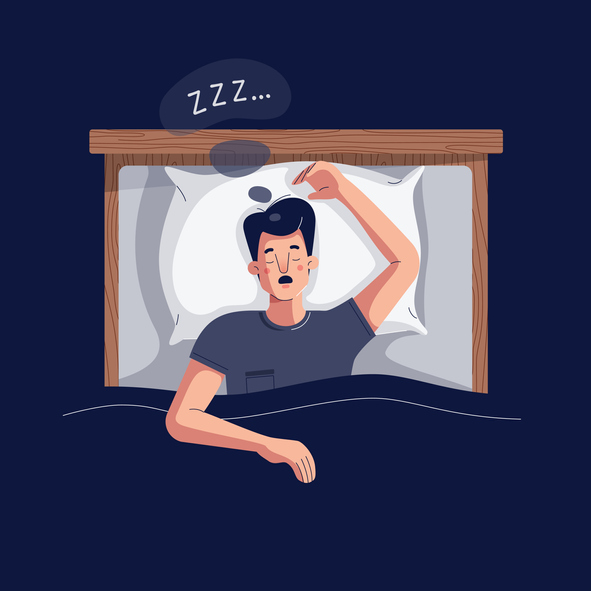You know how you feel after a bad night’s sleep. After sitting up in bed, your head swims. Concentrating, even on the simplest tasks, seems impossible. The fogginess in your temples gives way to a headache. Just thinking about it would make anyone want a nap. Not getting enough sleep comes with a whole host of unpleasant side effects. For some people, addressing one common sleeping habit could relieve many of these symptoms. And that habit is snoring. At first glance, snoring might appear to be just an annoyance. How exactly can snoring affect your sleep? It might be indicative of a greater problem.
Snoring and Sleep Apnea
Snoring by itself is not a big problem. But it might be a symptom of something worse – sleep apnea. For someone with this condition, breathing will start, stop, and restart during sleep. Though this might not seem significant, it means less oxygen in your blood. These fits and starts of breath can cause you to awaken unnecessarily at night.
Causes of Sleep Apnea
There are two main categories of sleep apnea:
- Obstructive sleep apnea
- Central sleep apnea
Obstructive sleep apnea is the most common type. It occurs when your airway becomes blocked while you are asleep. If you snore, you likely sleep with your mouth open. Then, the tongue will roll toward the back of your mouth. Furthermore, the weight of your jaw and chin constricts your airway. Each time you inhale through your mouth, your body tries to inhale. Because you’re breathing through a narrower airway, you aren’t breathing in enough oxygen. Any of these kinds of bodily problems comprise obstructive sleep apnea.
Central sleep apnea is less common. Instead of a mechanical problem, like a constricted airway, your brain doesn’t send signals to your body. Thus, you don’t breathe like you’re supposed to. One common contributing factor to central apnea is Cheyne-Stokes breathing. This condition happens when the speed of your breathing increases, then decreases. The speed of your breath will slow until it stops completely, then it will start again. Cycles of Cheyne-Stokes breathing can last from 30 seconds to two minutes.
Common Risk Factors
Some risk factors that 0lay a part in sleep apnea are within our control. And others are not. Lifestyle risk factors might include high blood pressure, obesity, smoking, and drug or alcohol abuse. Someone suffering from sleep apnea has some degree of influence over these factors.
Risk factors outside someone’s control might include hypothyroidism, a deviated septum, a family history of sleep apnea, asthma, and more.

What Can You Do?
If you suffer from sleep apnea, relax. You can take a breath. Dr. Monica Tadros is one of the foremost experts on sleep apnea in the New York and New Jersey areas. Depending on your case, Dr. Tadros might schedule you for a sleep study so she can observe your breathing. After that, she may fit you for a continuous positive airway pressure (CPAP) device. But at the Center for Sinus, Sleep & Facial Plastic Surgery, we treat everyone on a case-by-case basis.

